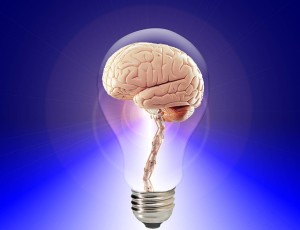 Memory loss can be one of the first things to go when you start to age. There are, however, several ways to keep sharp with your memory the same or even better than before.
Memory loss can be one of the first things to go when you start to age. There are, however, several ways to keep sharp with your memory the same or even better than before.
Pay careful attention to what you want to remember to ensure the information is retained in your long-term memory. Distractions, such as music and television, prevent you from paying the required amount of attention to the material. Failure to concentrate will result in the information being lost and not committed to memory.
One exercise that will help you remember better is to write things down. This process increases the flow of blood to the brain, particularly the areas associated with memory, and forces you to use it. If you write detailed lists or keep a diary, you can increase your short-term memory abilities.
If you find yourself having difficulty recalling information, take a deep breath and relax. Sometimes all you need is a bit more time to allow your memory to retrieve the information. Feeling pressed for time can result in stress that inhibits the recall process. Remember that the older you are, the longer it takes to retrieve information from the memory.
Visualizing yourself recalling information is actually a great way in which you can work to recall information. You are basically training your brain to be able to memorize items when you foresee yourself dipping into that memory bank to pull them out at a later date. Think of it like visualizing your hand turning a doorknob before you actually turn it.
To try to remember more things. You may want to create a catchy song. People find that putting important information into a song helps their memory. Try to find words that rhyme, and do not put anything too complicated into the song, as that could just end up confusing you more.
Writing by hand is a great way to help your memory. Writing with a pen or pencil engages your brain in a different way than typing on a computer. You can either copy out a speech your trying to memorize or keep track of your daily to do list by writing in a calendar. If you’ve written it out, you may be able to remember without even checking your list!
After you learn something new, teach it to another person. When you teach it, it forces your brain to manipulate the information in another way in order for you to articulate it. This manipulation of information strengthens that part of your memory, and it is an effective way in committing the new information into your brain.
When trying to commit information into your long-term memory, make sure you are in a location with zero distractions. It takes real attention to move information from short-term to long-term memory, and a distracting environment can make the task nearly impossible. Steer clear of areas where there are televisions, radios, crowds or lots of visual stimuli.
Reducing distractions in your immediate environment will go a long way in helping you to remember something. Phones ringing, children screaming or horns honking are not conducive to memory for anyone so limit the amount of distractions your mind has to deal with, and you will increase your ability to remember!
As mentioned in the start of this article, memory is a key component in aging. Memory and brain function isn’t as mysterious as it used to be and following these tips daily you will surprise yourself at how much you will be able to improve your memory.

